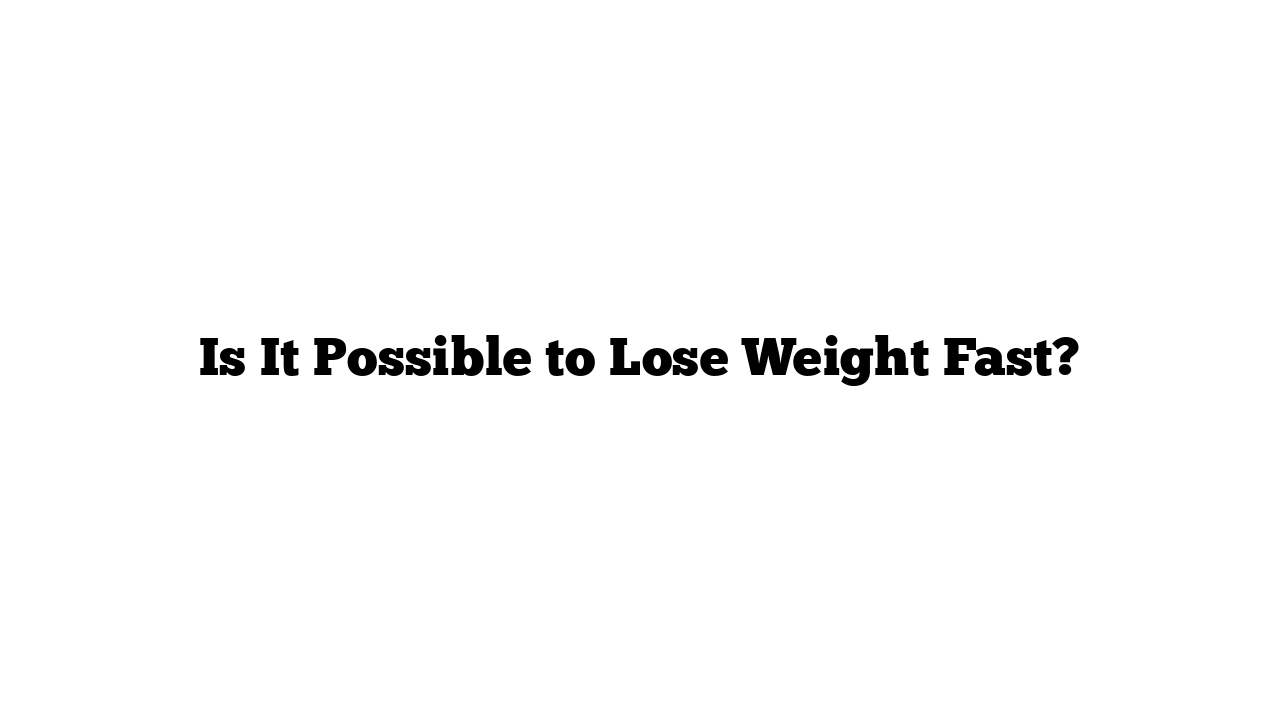In the wealthy circles of Victorian England, bizarre dieting fads were rampant. One of the strangest was the tapeworm diet, where dieters swallowed an unhatched tapeworm and let it grow inside them by consuming undigested meals. While obviously dangerous and unhealthy, it reflects a broader trend in diet culture: the promise of rapid weight loss.
Today, modern fad diets offer similar claims—guaranteeing quick results. But are there any fast diets that truly work? And are they healthy? Let’s explore these questions through the story of Sam and Felix, identical twins with the same body composition but very different approaches to dieting.
Sam vs. Felix: Two Approaches to Weight Loss
Sam decides to lose weight gradually. He reduces his calorie intake a little each day while increasing his exercise. This creates a caloric deficit, prompting his body to burn stored energy. Initially, Sam’s body uses glycogen, a form of stored glucose in the liver. After about 4 to 6 hours, he shifts to burning fat cells, providing energy through lipid droplets that travel in the bloodstream to nourish his organs and tissues.
Felix, on the other hand, aims for rapid weight loss by drastically cutting his calorie intake. Unlike Sam, who eats smaller, balanced meals, Felix is almost starving himself. Within 18 hours, his body exhausts its glycogen reserves. Without the regular intake of nutrients, Felix’s body enters a starvation response, breaking down muscle for energy.
While Sam maintains muscle mass through exercise, Felix’s extreme dieting leads to muscle loss, decreasing his metabolism and making it harder to lose weight in the long run.
The Illusion of Quick Weight Loss
Felix may see initial weight loss due to the depletion of glycogen and its associated water weight—potentially losing up to 2 kilograms. However, once he resumes normal eating, his body will quickly replenish glycogen stores, resulting in regained weight.
Despite this, extreme calorie reduction isn’t the only method promising fast results. Detoxification diets claim to cleanse the body by promoting or restricting certain foods. While they may help address specific nutritional deficiencies—like low vitamin A from a juice diet—these plans can be harmful when used indiscriminately.
For someone with sufficient vitamin A, for example, juicing could lead to toxicity. Moreover, sticking to a juice diet over weeks can compromise the immune system due to a lack of essential fats and proteins.
The Dangers of Extreme Dieting
Whether through calorie restriction or food group elimination, extreme diets can shock your system. Sustainable, healthy weight loss is generally around 0.5 to 1 kilogram per week, allowing your body to adjust naturally.
The long-term side effects of extreme diets are often overlooked, as many people struggle to maintain them. Plus, societal pressures to lose weight for reasons other than health or happiness can lead to unhealthy relationships with food and body image.
A Healthier Approach to Weight Loss
Instead of trying to lose weight quickly, it’s essential to focus on finding a balanced, healthy lifestyle that works for you. This means understanding your unique nutritional needs and making gradual, sustainable changes to your diet and exercise habits.
Ultimately, slow and steady wins the race. Prioritizing health and well-being over quick fixes is the best way to achieve lasting results. Remember, it’s not just about losing weight—it’s about nurturing a lifestyle that supports your overall health.
For further reading on healthy weight loss, check out these resources:
